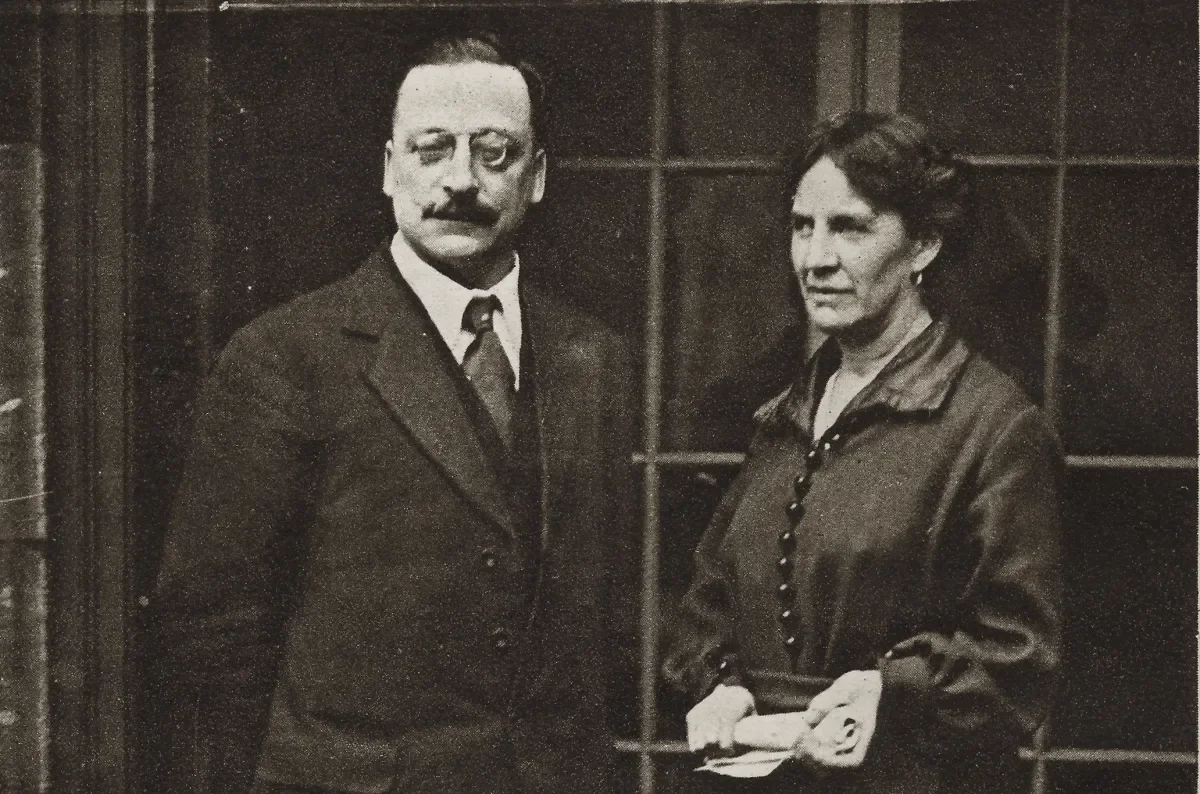

New book by DCU professor emeritus Colum Kenny a “radical reappraisal” of Arthur Griffith
The Enigma of Arthur Griffith, ‘Father of Us All’ is the latest book from DCU professor emeritus Colum Kenny. In his radical reappraisal of Griffith, a Dublin northsider and founder of Sinn Féin, Kenny asks who was the real Arthur Griffith.
Griffith signed the Anglo-Irish Treaty in 1921. With the Irish state now preparing to celebrate its centenary in 2022, Kenny says that ‘it is time for Arthur Griffith’s central role in its creation to be fully recognised. This book does that.’
The book explores Griffith’s relationship with Maud Gonne, W.B. Yeats, James Connolly and Éamon de Valera. He traces the attitude of James Joyce to Griffith and to Griffith’s nationalism. Kenny recalls Arthur Griffith for a new generation. It takes a look, ‘warts and all’, at this remarkable man whose loving wife called him ‘a fool giving his all, others having the benefit’. No single political party today can claim his legacy exclusively.
As acting-president of the first Dáil. and as president of Dáil Éireann when civil war erupted, Arthur Griffith was central to the creation of the present Irish state. He was, as Michael Collins is said to have called him, ‘father of us all’.
Colum Kenny, a long-time member of faculty in the School of Communications, explores Grifith’s media work as the most influential advanced nationalist journalist of the early twentieth century in Ireland. Between 1899 and 1919 Griffith edited five titles. James Joyce said that Griffith’s United Irishman was ‘the only paper in Dublin worth reading’ and he used to read it regularly.
Kenny deals head on with controversial issues around Griffith’s attitude towards race, painting a picture of a man of many contradictions. Maud Gonne and other women found him supportive of their efforts to organise for women’s rights.
Griffith was born at 61 Upper Dominick Street, Dublin, on 31 March 1871. His wife later said that Dublin was ‘where his grandfather or great-grandfather had come to from Redhills in Cavan, having been thrown out by his Presbyterian family because he had become Catholic’. But he was anti-clerical. Griffith’s father was a printer. The Griffiths moved a number of times, always renting rooms in central Dublin in an arc around Summerhill. It was an area blighted by some of the worst poverty in Europe. Griffith dedicated his life to improving the social and political conditions of his people.
He married Mary Sheehan, although he always called her Molly. For reasons that are unclear, she was known in public as Maud. They had a son and daughter. Their home of St Laurence’s Road in Clontarf was continually raided by Crown forces and he was interned three times before his sudden collapse and death in 1922.
It was said that Arthur Griffith died of a broken heart. An unsigned note in the National Library states that, ‘Shortly after the start of the Civil War workmen were delayed in getting into his office as he was seated at his desk with his hands to his face. On arranging his desk for removal, one of the workmen discovered the blotting pad was quite wet with his tears.’
Griffith was committed to building up Irish business. Colum Kenny’s grandfather, whose papers are now among the archives of Dublin City University, joined Griffith on the Industrial Development Association–which was a voluntary forerunner of the later IDA. Griffith also entrusted Kenny with the commercial management of later editions of the pioneering annual Sinn Féin Yearbook.
Those yearbooks and other initiatives, including Griffith’s experiment in banking and his Aonach industry fair held annually from 1908 until 1914, serve as useful reminders that advanced nationalism was about more than bare politics. Not until Seán Lemass and T.K. Whitaker launched their first programme for economic expansion in 1958 was there again such an imaginative and optimistic effort to envisage Ireland’s material and social future as that developed by Arthur Griffith, except perhaps that of Griffith’s socialist friend James Connolly.
Griffith’s journalism is full of demographic, financial, and other statistics. That he frequently presented cogent evidence-based arguments in support of his contention that Ireland was inequitably treated by Britain, both socially and economically, is not always clearly recognised.
Griffith wrote that, ‘Politics or no politics we must have the facts, and the better and more widely these facts are known, the sooner we shall get rid of talking and theorizing, and get down to work to lift the country out of its present beggarly condition.’
The Enigma of Arthur Griffith: ‘Father of Us All’, by Colum Kenny, is published by Merrion Press
